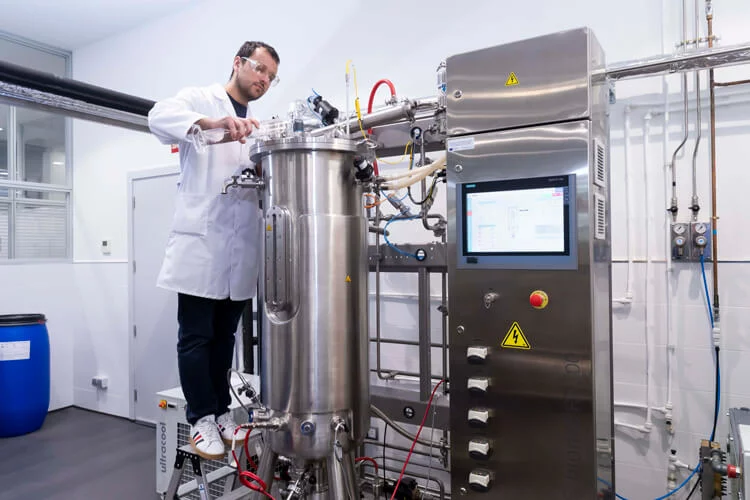The CTPTI Bioprocess Pilot Plant at IQS has recently carried out various collaborative efforts with companies on projects and developing innovative products in the fields of biostimulants and alternative proteins.

IQS Bioprocess Pilot Plant
The Bioprocess Pilot Plant at the IQS Process Transfer and Integrative Technology Centre (CTPTI) has recently carried out various collaborative efforts with companies on projects and developing innovative products in the fields of biostimulants in the agricultural sector and alternative proteins for the food sector.
Biostimulants
The field of biostimulants represents a very interesting alternative to classic fertilizers. Designed from natural active ingredients and based on microorganisms, these products are tasked with supporting natural crop processes by improving the absorption and assimilation of nutrients at the exact times that plants need them.
By collaborating with companies in the sector, various bioprocesses have been developed and scaled in these fields at the Bioprocess Pilot Plant. This will allow these companies to launch new products in the near future that will be more sustainable and contribute to improving their competitiveness.
Alternative proteins
The team responsible for the IQS Bioprocess Pilot Plant has participated in various forums to discuss the future of the use of alternative proteins and is contributing its experience in the field of fermentation and biotechnological processes.
Alternative proteins are food sector products that are currently experiencing a boom. They ensure environmental sustainability and support food based on non-animal proteins. There are different alternative protein options, such as:
- Plant protein
- Insect protein
- Producing products from micro-organisms
- Creating tissue from stem cells
Out of all these alternative protein options, the protein obtained from precision fermentation represents a very interesting alternative. Based on knowledge and experience in traditional fermentation, precision fermentation makes it possible to obtain a wide spectrum of proteins with organoleptic characteristics in addition to nutritional qualities that are similar to those of animal protein.
The use of microorganisms makes it possible to produce specific ingredients with a high degree of purity, based on clean technology, which is scalable and has a low associated cost.
For more information, please contact: Dr Arnau Pla – arnau.pla@iqs.url.edu










